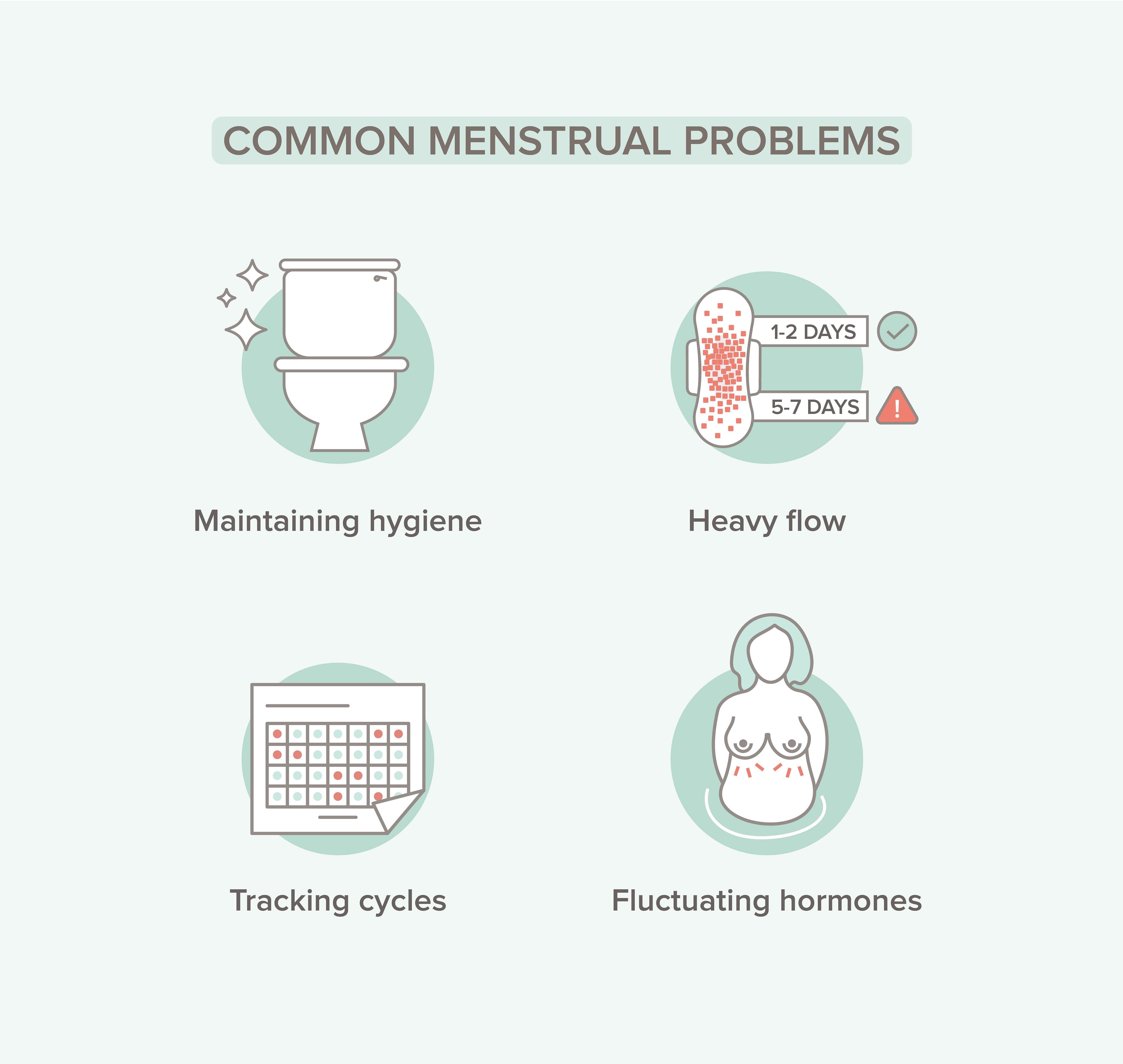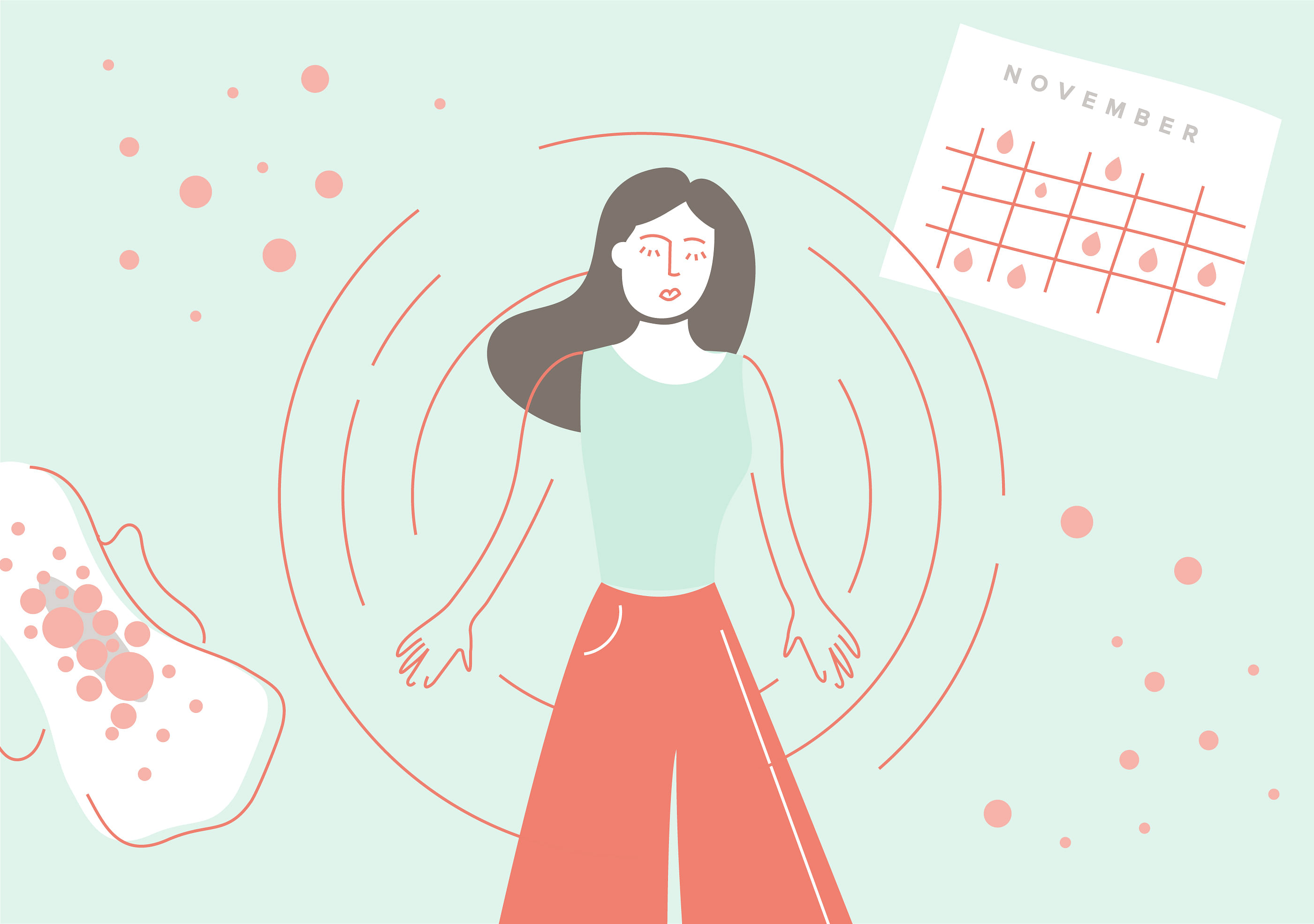Menstrual health comprises the physical, social and mental aspects related to menstruation or periods. In India, women’s health has been given secondary importance due to a male dominant society, illiteracy, low socio-economic conditions and ignorance. The most common causes of menstrual problems are PCOS (Polycystic Ovarian Syndrome), and abnormal menstrual flow or heavy menstrual bleeding.
Menstruation or monthly periods have been associated with a lot of social and cultural taboos in India. Many young girls and women do not have facilities to manage their menses hygienically, maintaining their privacy, dignity and gender equality at home, schools and workplaces.
So, what are normal periods?
A normal menstrual period lasts from 2-7 days and comes at an interval of 21-35 days. It is difficult to quantify the actual menstrual flow. In general, use of three to four XL or regular size sanitary pads per day (since they need to be changed every six to eight hours) can be considered normal on an average, but it may vary depending on the individual.

- Menstrual hygiene related problems
Use of unclean sanitary pads or clothes can give rise to Genital Tract Infections, anaemia and Urinary Tract Infection. This can be prevented by social awareness and easy availability of affordable sanitary products. It is also important to have the right knowledge about menstrual hygiene and menstrual health to avoid such issues from taking place.
- Menstrual flow related problems
One can experience excess or scanty flow during periods. Usually heavy menstrual flow can be for 1-2 days but if it continues for more than 5-7 days, it can lead to low haemoglobin and anaemia. This definitely needs to be investigated and treated along with oral iron replacement therapy. The less flow or change in flow over years can be due to hormonal imbalance. This can occur mostly after completion of family in perimenopausal age.
- Menstrual cycle related problems
Irregular periods, skipping or not getting periods for more than six months (also known as secondary amenorrhoea) and bleeding in between periods (called inter menstrual bleeding) are a few problems under this type of cycle problems. The most common cause for this is Polycystic Ovarian Syndrome (PCOS), stress, anxiety and depression. Investigations in the form of pelvic sonography and hormonal investigations are necessary to make a diagnosis. Regular exercise, a balanced diet and healthy lifestyle changes are important.
- Menstrual hormone related problems
This usually gives rise to psychomotor issues. They can be symptoms of Premenstrual Syndrome (PMS) at any age group or peri/postmenopausal vasomotor symptoms after the age of 45. Bloating, breast tenderness, irritability and depression which occur premenstrually and disappear with onset of periods are classical symptoms of PMS. If they are affecting your day to day family life, then it needs to be treated.
Every woman experiences menopausal symptoms in varying severity, starting usually 4-5 years before menopause. The night sweats ,hot flushes, low moods ,anxiety, irritability, joint and muscle pain, loss of interest in having sex, and weight gain are typical menopausal symptoms due to deficiency of oestorgen hormones.
No matter which type of menstrual problem you’re facing, it is always advisable to visit a gynaecologist who will be able to identify all your queries after making the right diagnosis to boost your menstrual health.
Our experts work round the clock to provide you with the answers that you are looking for. So if you have any, leave it in the comment section below or send us a DM at @nuawoman. This is a safe space so don’t hold back on any doubts you may have about your body and mind.
To know more about the gynaecological topics and how to take care of your intimate parts, read Dr. Vaishali Joshi’s articles right here. You can also read our other expert content here.









